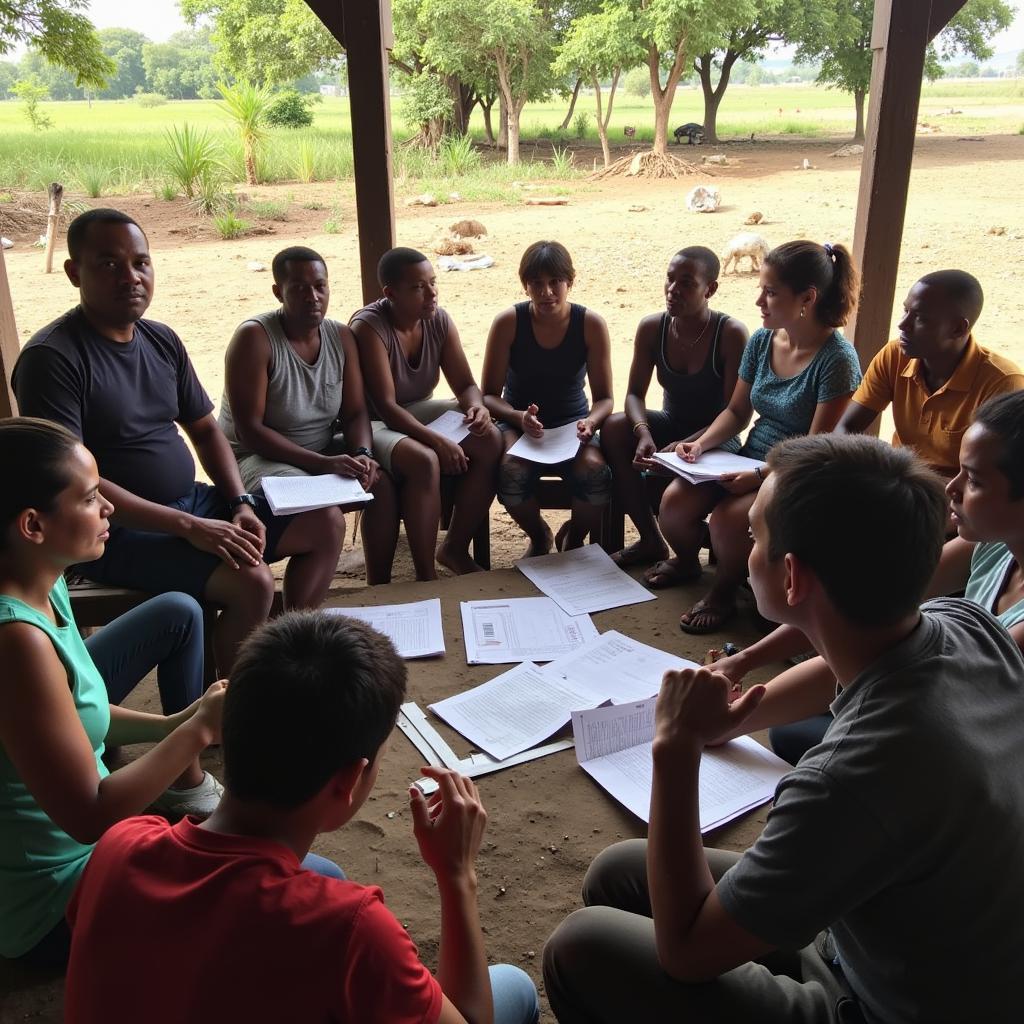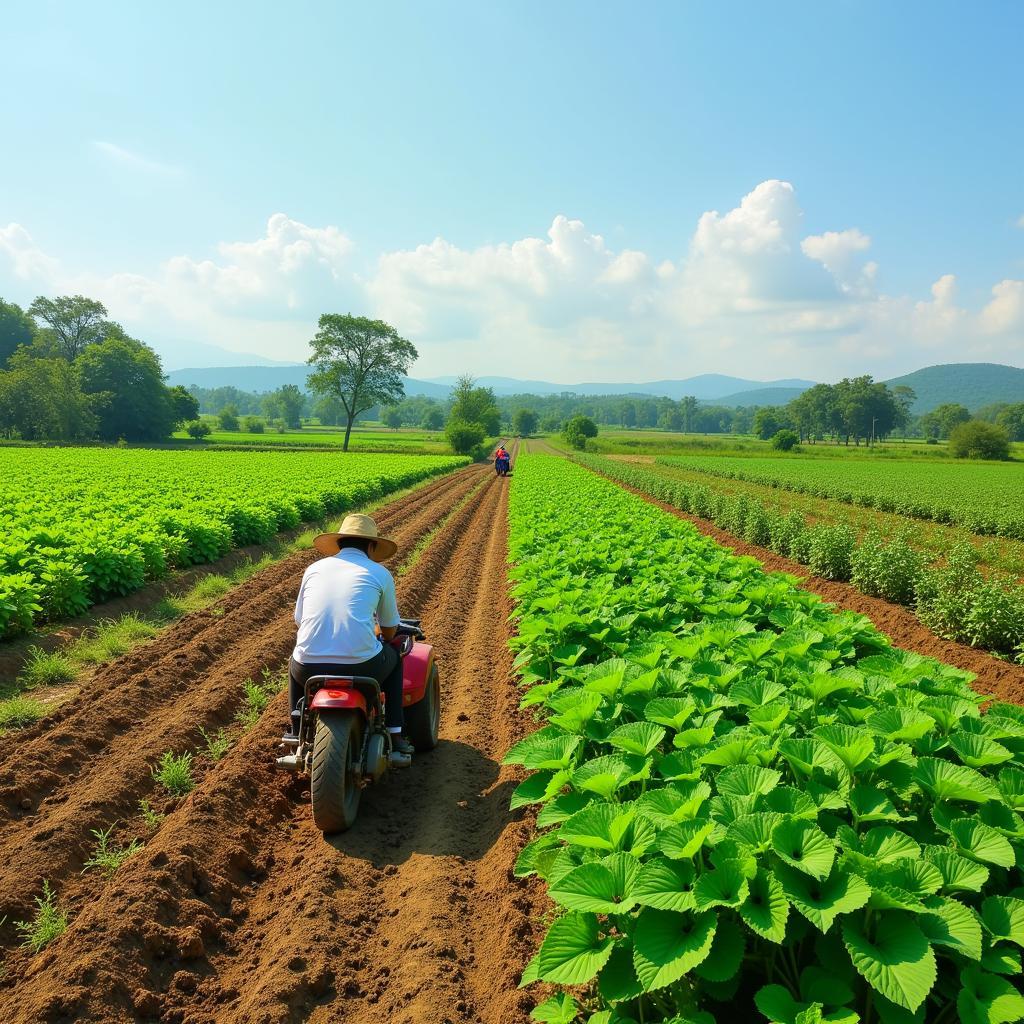Primary Agricultural Credit Societies (PACS) are the foundation of the cooperative credit structure in many countries, particularly in rural areas. They play a vital role in providing financial assistance to farmers and other agricultural workers, promoting financial inclusion and empowering rural communities. These societies are essentially small, locally owned and operated financial institutions formed by a group of people primarily engaged in agriculture. They aim to provide easy access to credit and other financial services to their members, often at more favorable terms than traditional banks.
Understanding how PACS function is crucial for anyone involved in agricultural finance or rural development. They are a cornerstone of many rural economies, offering a vital lifeline to those who might otherwise struggle to access the financial services they need. These societies not only provide credit but also offer other financial services like savings accounts, insurance, and even investment opportunities. By pooling resources and leveraging the collective strength of their members, PACS contribute significantly to sustainable agricultural development.
Understanding the Role of a Primary Agricultural Credit Society
The core function of a PACS is to provide short-term and medium-term loans to its members for agricultural purposes. This might include financing the purchase of seeds, fertilizers, pesticides, agricultural equipment, or even livestock. Beyond lending, they also encourage savings among members, promoting financial prudence and stability within the community. By promoting savings, PACS foster a culture of financial responsibility and create a pool of resources that can be utilized for lending within the community. They also function as a conduit for government schemes and subsidies aimed at supporting the agricultural sector.
 Farmers Meeting at Primary Agricultural Credit Society
Farmers Meeting at Primary Agricultural Credit Society
Benefits of Joining a Primary Agricultural Credit Society
Joining a PACS offers several benefits, especially for small and marginal farmers who often lack access to formal banking systems. One key advantage is access to affordable credit. Because PACS are member-owned and operated, they can often offer loans at lower interest rates than commercial banks. Furthermore, the loan application process is generally simpler and less bureaucratic, making it easier for farmers to access timely financial assistance. PACS also empower members by giving them a voice in the society’s governance.
indian cooperative credit society
Another crucial benefit is promoting financial literacy. Many PACS organize training programs and workshops to educate their members about financial management, budgeting, and other relevant financial topics. This empowers members to make informed decisions about their finances and contributes to their overall financial well-being. These societies become a crucial support system for rural communities, fostering collaboration and mutual assistance among members.
How Does a Primary Agricultural Credit Society Work?
PACS operate on the principle of cooperation, with each member having equal voting rights regardless of their shareholding. They are typically managed by an elected managing committee chosen from within the membership. These societies are often registered under the relevant cooperative societies acts of their respective countries or regions, providing a legal framework for their operation.
The Importance of PACS in Rural Development
PACS play a crucial role in fostering financial inclusion within rural communities. They provide access to financial services for those who are often excluded from traditional banking systems, enabling them to participate more fully in the economy. Moreover, by supporting agricultural activities, PACS contribute to the overall economic growth and development of rural areas.
 Positive Impact of the Primary Agricultural Credit Society on the Community
Positive Impact of the Primary Agricultural Credit Society on the Community
By providing access to credit and other financial services, these societies help to improve agricultural productivity, generate employment opportunities, and enhance the livelihoods of rural populations.
indian cooperative credit society
What are the eligibility criteria for joining a PACS?
Generally, anyone engaged in agriculture or related activities within the PACS’s operational area is eligible for membership. This may include farmers, agricultural laborers, and even those involved in processing or marketing of agricultural products. The specific requirements for membership can vary depending on the bylaws of each individual society.
Conclusion
Primary Agricultural Credit Societies are vital institutions that play a significant role in supporting agriculture and promoting financial inclusion in rural areas. They provide access to affordable credit and other essential financial services, empowering farmers and contributing to the overall development of rural communities. Understanding What Is Primary Agricultural Credit Society is crucial for anyone interested in sustainable agricultural development and rural empowerment.
FAQ
- What are the main functions of a PACS?
- How can I become a member of a PACS?
- What types of loans are offered by PACS?
- What are the interest rates on loans from PACS?
- Are PACS regulated by the government?
- How do PACS contribute to rural development?
- What are the benefits of joining a PACS compared to traditional banks?
Common Scenarios for Questions about PACS
- A farmer seeking information about loan options for purchasing new equipment.
- A rural entrepreneur looking to expand their agricultural business.
- A student researching the role of cooperative credit societies in rural development.
Further Exploration
For more information, you can explore other relevant articles on our website, such as those related to cooperative banking and rural finance.
If you need further assistance, please contact us: Phone: 02043854663, Email: [email protected] Or visit our address: Khu 34, Bắc Giang, 260000, Việt Nam. We have a 24/7 customer support team.